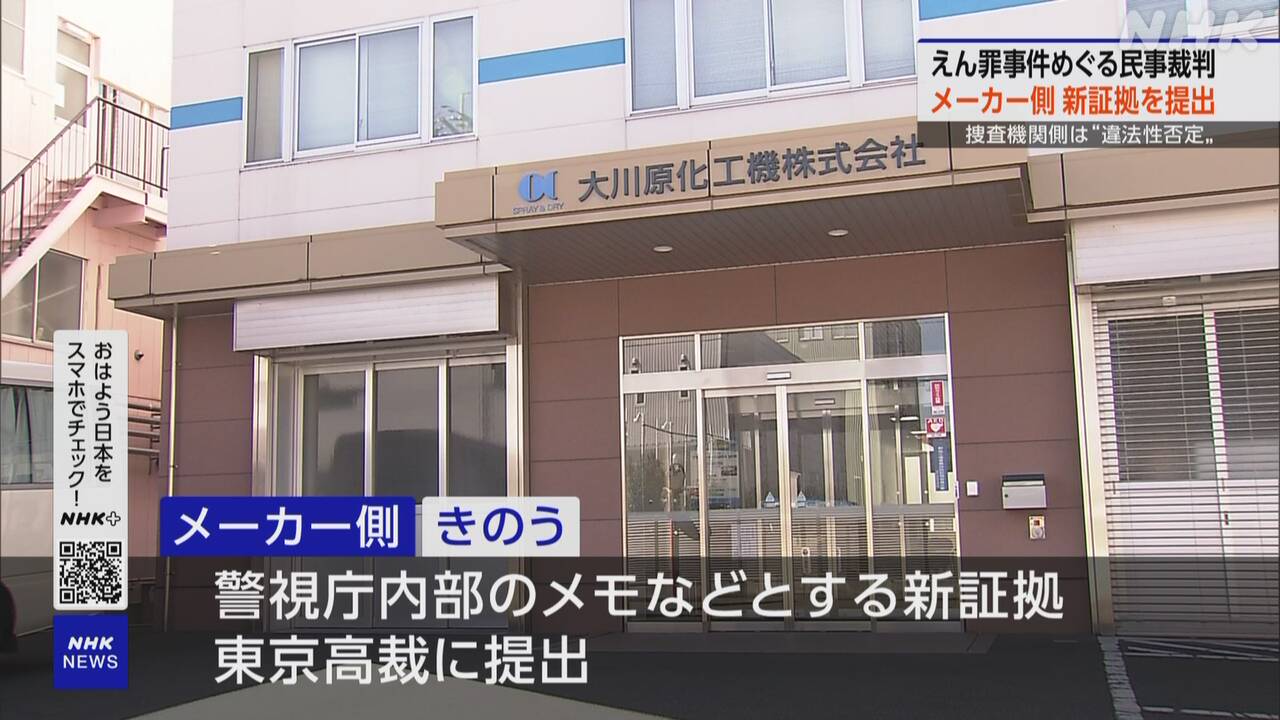In a civil trial involving a false accusation in which three people, including the president of a chemical machinery manufacturer in Yokohama, were arrested on suspicion of illegal export, it was later revealed that they were innocent. He submitted evidence and claimed that he had ``fabricated the incident.''
Meanwhile, the investigating agency denies the illegality of the investigation.
Three people, including the president of Okawara Kakoki, a chemical machinery manufacturer in Yokohama City, were arrested and indicted on suspicion of illegal export.The indictment was later canceled.In the case, the presidents sued the national government and the Tokyo Metropolitan Government, and filed a civil lawsuit. continues.
The Tokyo District Court of First Instance acknowledged the illegality of the investigation, but did not mention the testimony of an active investigator who said the incident was "fabricated."
As a result, both parties have filed an appeal, and on February 29th, the manufacturer submitted new evidence to the Tokyo High Court, including internal memos from the Tokyo Metropolitan Police Department.
The memo records exchanges between the Ministry of Economy, Trade and Industry, which is in charge of export controls, and the Metropolitan Police Department, and although the Ministry of Economy, Trade and Industry initially expressed the view that Okawara Kakoki's products were not subject to restrictions, it later authorized a raid. He was said to have said something like this.
The manufacturer claims, ``The Metropolitan Police Department distorted the opinion of the Ministry of Economy, Trade and Industry. It fabricated the incident by making full use of illegal activities.''
On the other hand, the Tokyo Metropolitan Government maintains that there was no illegal investigation, saying, ``There is no evidence that the Ministry of Economy, Trade and Industry's opinion changed due to the Metropolitan Police Department's intervention.''
The government argues that ``the prosecution was determined based on the evidence available at the time, so it cannot be called unreasonable and is not illegal.''

